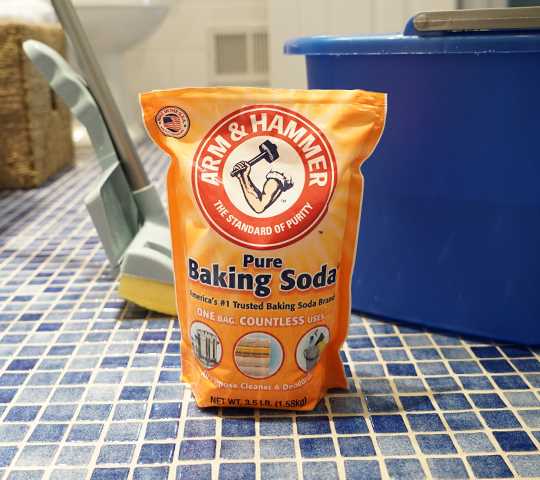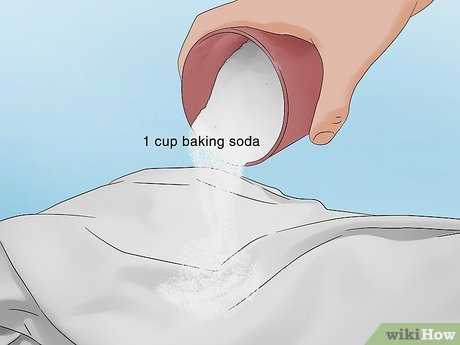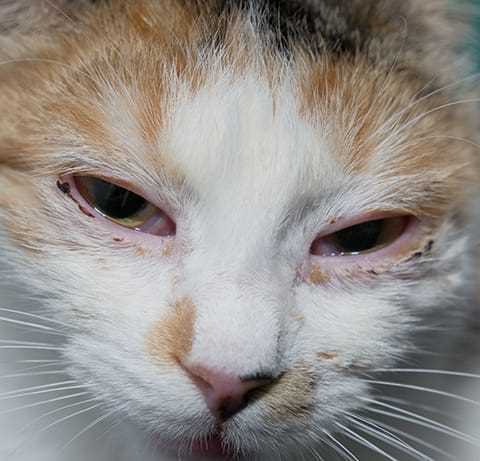



First, grab a solution of white vinegar and water in a spray bottle. Mix equal parts of both ingredients. This natural remedy helps neutralize unpleasant odors effectively. Spray the affected areas generously and let it sit for about 15 minutes before rinsing.
Next, consider using baking soda. Sprinkle a good amount on the stained fabric after treating it with vinegar. This powder absorbs any lingering odors. Leave it on for several hours or overnight for the best results. Shake off the excess baking soda afterward.
Another option is to wash the fabric with an enzymatic cleaner. These products break down odor-causing compounds at a molecular level. Follow the instructions on the label to ensure proper use. It’s often recommended to wash the fabric in the hottest water safe for the material.
Lastly, air drying is key. Avoid using a dryer right away, as heat can set any remaining odors. Instead, hang the fabric outside or in a well-ventilated area. Fresh air and sunlight work wonders in eliminating any stubborn scents.
Eliminating Unwanted Odor from Fabrics

Mix one cup of white vinegar with two cups of water in a spray bottle. Spray the affected area generously and let it sit for about 15 minutes. Afterward, blot the area with a clean cloth to absorb excess moisture. This solution helps neutralize unpleasant aromas effectively.
Using Baking Soda for Freshness
Sprinkle baking soda on the damp spot after applying the vinegar solution. Allow it to sit for several hours or overnight. Vacuum the area to remove the baking soda, which will absorb lingering scents and leave behind a fresher fabric.
Washing with Enzymatic Detergent
Choose a high-quality enzymatic detergent designed for tough odors. Wash the fabric in the warmest water safe for the material. Enzymes break down odor-causing proteins, ensuring a deeper clean. Always double-check care labels before washing.
Identify and Treat the Stained Area Immediately
As soon as I spot a stain, I jump into action. First, locate the affected spot on your fabric. It’s crucial to act quickly; the longer it sits, the harder it becomes to eliminate the issue.
Steps to Follow:
- Blot the area with a clean cloth or paper towel. Avoid rubbing, as this pushes the liquid further into the fibers.
- Apply a mixture of cold water and white vinegar in equal parts to the stain. This helps neutralize the odor.
- Let the solution sit for about 10 minutes, then blot again to absorb the moisture.
- For stubborn marks, sprinkle baking soda over the area. This will aid in absorbing remaining moisture and odors.
- After a few hours, vacuum the baking soda to lift any residue.
Always check the care label on your fabric before applying any treatment. For delicate materials, test any solution on a hidden area first.
In addition to these steps, if you manage an aquarium, you might find it useful to know how to lower nitrite in fish tank for maintaining a healthy environment.
Choose the Right Cleaning Solution for Cat Urine
Opt for enzymatic cleaners specifically formulated to break down organic stains. These products contain enzymes that target proteins in waste, effectively neutralizing odors. Look for brands that highlight pet stain removal on the label.
White vinegar mixed with water in a 1:1 ratio serves as a natural alternative. It lifts stains and neutralizes odors without harmful chemicals. Apply this solution to the affected area and let it sit for 10-15 minutes before blotting.
Baking soda is another useful option. After treating the stain, sprinkle it on the area and let it absorb moisture overnight. Vacuum it up the next day to eliminate any lingering scents.
For severe cases, consider hydrogen peroxide diluted with water. Test it on a hidden fabric area first, as it can lighten colors. Apply it to the stain, let it sit for a short time, and blot afterward.
Always follow the manufacturer’s instructions for any cleaning products. This ensures maximum effectiveness and prevents damage to fabrics. Experiment with solutions until you find the one that works best for your specific situation.
Wash Clothes with Appropriate Settings
To effectively clean my favorite human’s garments, set the washing machine to the hottest water temperature that is safe for the specific fabric type. Check the care labels for guidance on maximum temperature settings.
Utilize a heavy-duty cycle to ensure thorough agitation, which helps break down any remaining residues. For delicate fabrics, a gentle cycle is advisable to prevent damage while still achieving cleanliness.
Recommended Wash Settings
| Fabric Type | Water Temperature | Cycle Type |
|---|---|---|
| Cotton | Hot | Heavy-duty |
| Polyester | Warm | Normal |
| Wool | Cold | Gentle |
| Silk | Cold | Gentle |
After washing, air-drying is preferable. It helps eliminate residual odors that might linger after the wash. If using a dryer, opt for a low heat setting to avoid shrinking or damaging the fabric.
Use Odor Neutralizers After Washing

After the wash cycle, I recommend applying a specialized odor neutralizer. These products are designed to break down lingering scents at a molecular level. Look for enzymatic cleaners that target organic odors; they work wonders.
Spray the neutralizer evenly on the affected areas. Allow it to sit for the time specified on the product label–this will enhance its effectiveness. Do not rush this step; it’s crucial for complete odor removal.
For best results, follow up with an additional rinse cycle. This helps to wash away any residual product, leaving a fresher scent. Always check the care instructions of your fabric to ensure compatibility with the neutralizer.
After treatment, air-dry the fabric. Avoid using a dryer right away, as heat can sometimes set any remaining odors. Once dried, give it a sniff test. Repeat the neutralizing process if necessary.
Prevent Future Incidents with Proper Care

Establish a routine for monitoring areas where I like to hang out. Regular checks can prevent unpleasant surprises. If you notice any signs of marking, take action immediately. Keeping my litter box clean and accessible is crucial; a dirty box can lead to accidents outside of it. Ensure it’s in a quiet, low-traffic area, as privacy is important for us furry friends.
Consider using talking buttons for cats to communicate my needs. It helps you understand when I want to go outside or if I’m having issues with my litter box. This proactive approach can significantly reduce mishaps.
Invest in high-quality litter that controls odor and appeals to my preferences. Experiment with different types to find what I like best. Additionally, keep my environment enriched with toys and scratching posts. A bored kitty might find alternative places to relieve himself.
Regular vet check-ups are essential to rule out any underlying health issues. Sometimes, accidents can signal discomfort or illness. Keeping me healthy is key to avoiding future problems.








